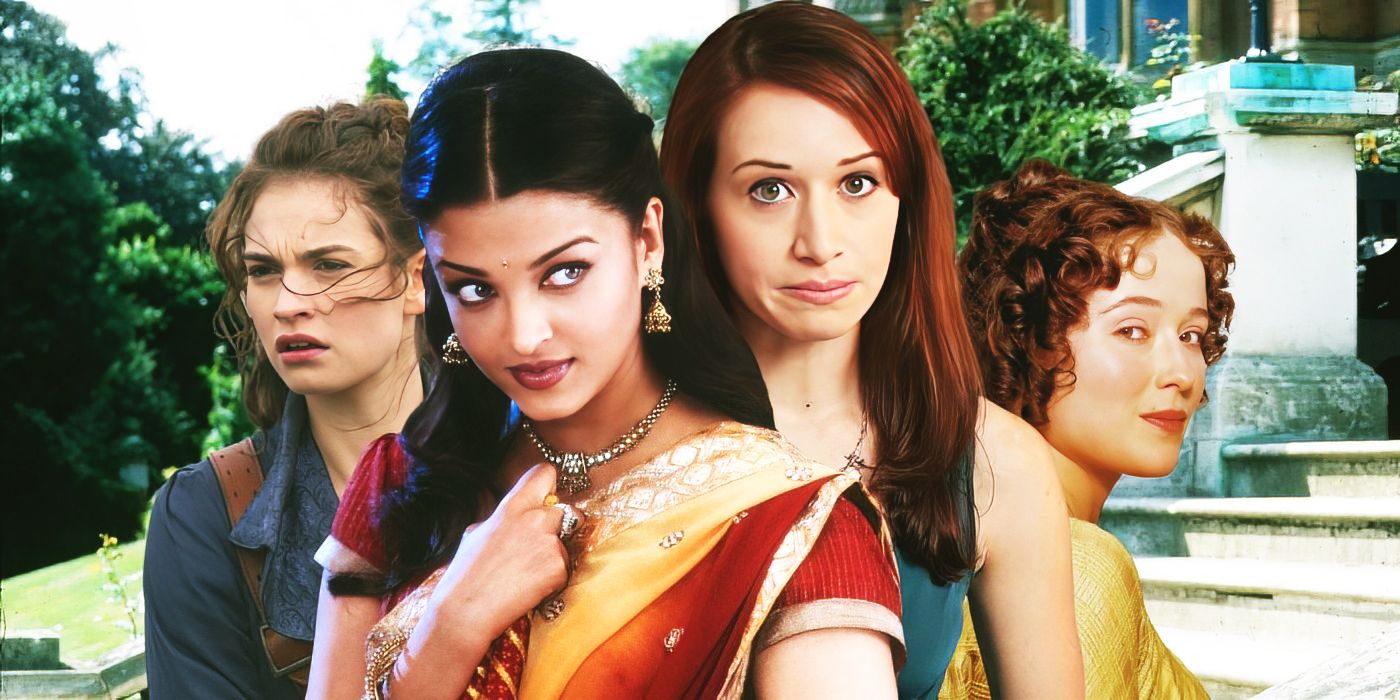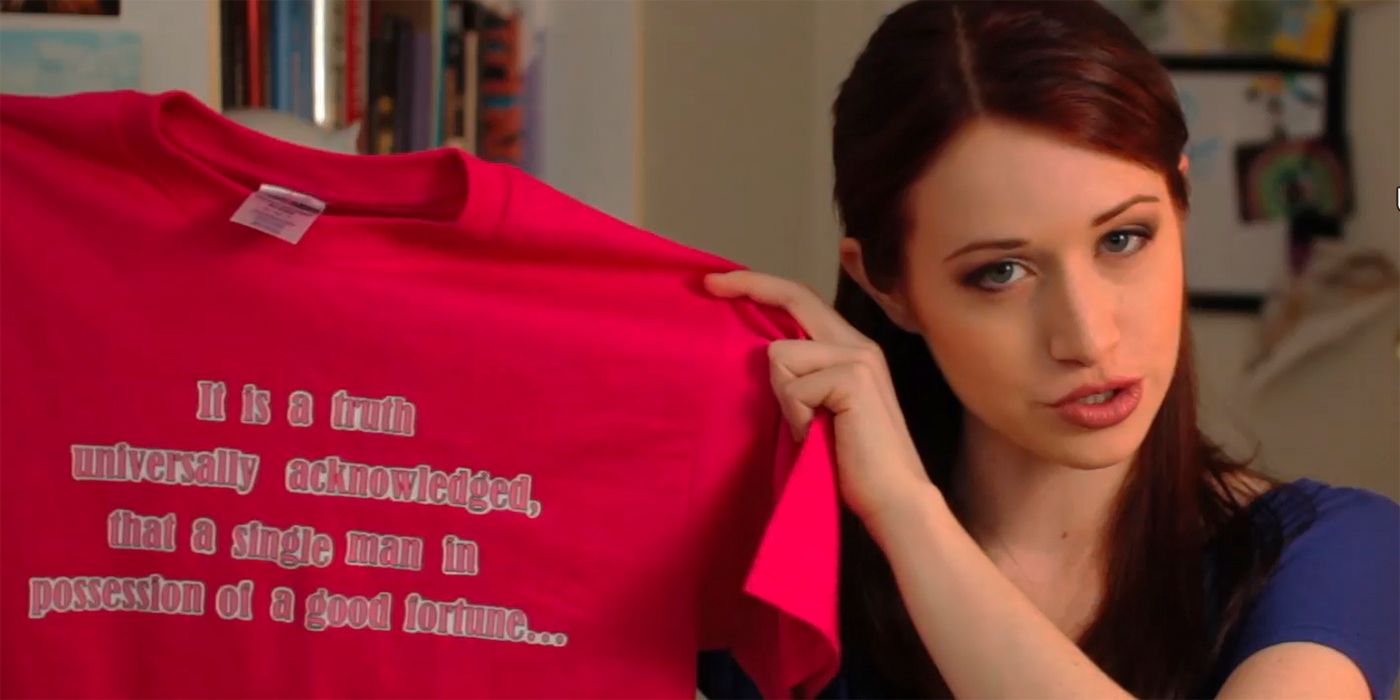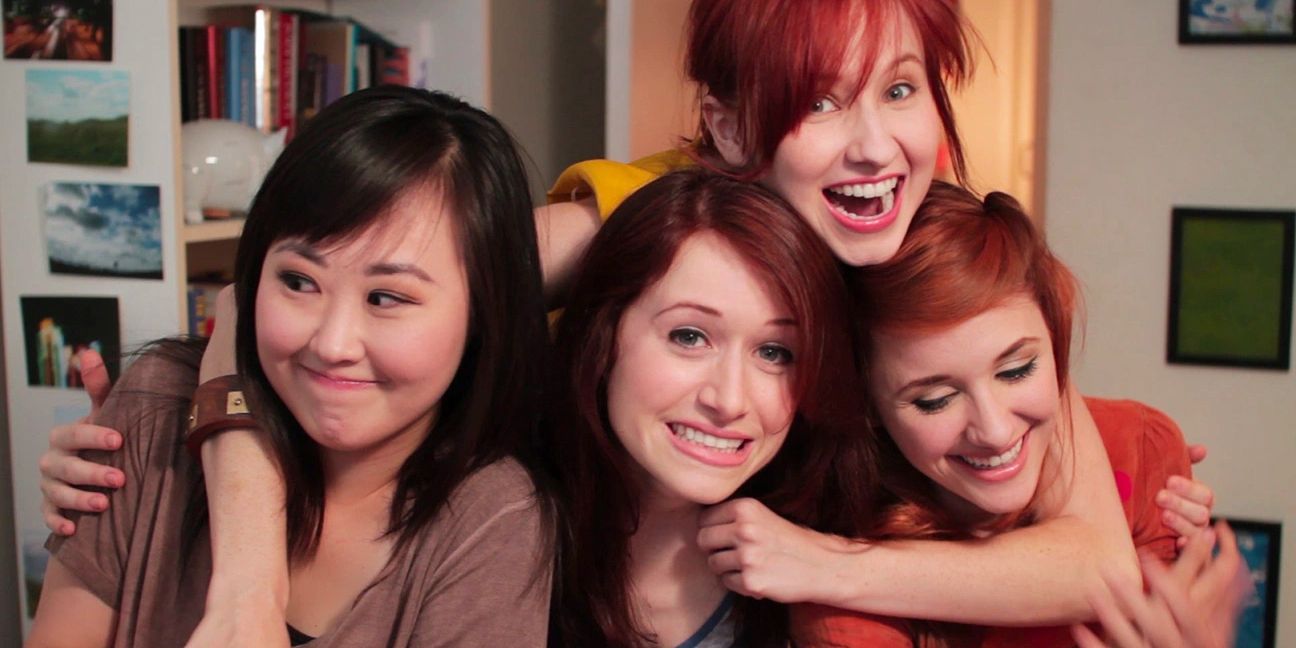Bringing famous authors of yore such as Shakespeare and Austen, the books high schoolers had to read in English class, to the modern era has come in waves of massive success. It arguably originated with West Side Story's adolescent focus in the 1960s, then exploded in the 1990s with some of the most beloved teen movies of all time. Now, this doesn't always work, of course. For every 10 Things I Hate About You, which fixed the glaring flaws in the bard's original story, there's a Cruel Intentions, whose high school setting misses the mark on what made the novel so great. Clueless is one of the best and most quotable films of the 1990s, Persuasion, the semi-modern adaptation you forgot about, was one of the biggest disappointments of 2022.
To successfully modernize a classic story, one must not only know why the story is so timeless to begin with, but also update the parts of the story that don't work when setting something in the modern day. When adapting a book to film, you're already taking out a big part of why the books are beloved, the author's voice. Then, when adapting a book written in the 19th century by setting it in the 21st, you're also removing much of the dialogue. No one is bringing out the purple prose and iambic pentameter in what is supposed to be a down-to-earth modern world, except for a cheeky quote here and there.
So, when you have source material like, for example, Jane Austen's seminal work Pride and Prejudice, what do you have left? Take away the author's original voice, the grandiose regency-era sets of the 2005 film or the 1995 BBC miniseries, and the iconic and romantic lines of dialogue. Take all of that away, and you still have some of the best character dynamics ever written, but that doesn't mean they can't be made so much better.
The Lizzie Bennet Diaries is not a TV show, but a web series that you can watch for free on YouTube right now. It was created by Hank Green and Bernie Su, and it was a project that ran for a full year from March 2012 to March 2013. It adapted, as these projects tend to do, the basic plot line of Pride and Prejudice. Following Elizabeth Bennet, here shortened to Lizzie and played by Ashley Clements, her adventures with her sisters Jane (Laura Spencer) and Lydia (Mary Kate Wiles), and of course the ultimate enemies-to-lovers story between her and William Darcy (Daniel Vincent Gordh). Salacious scandal, heartwarming romance, and witty repartee are all still there, George Wickham (Wes Anderhold) is still a jerk, and the heart of the story only grows three times larger with the massive facelift it was given.
A decade has just passed since the final official episode of the show, and anniversary celebrations were had last year. Let's look at The Lizzie Bennet Diaries and why it deserves to be celebrated as one of the best Pride and Prejudice adaptations, and certainly the best modern one, sorry Bridget Jones.
Instead Of Writing Letters, Elizabeth Bennet Talks To A Camera
The format is the first thing you'll notice about the show, which arguably ages it to the early-to-mid 2010s. The plot is mostly told through Lizzie's personal video logs, vlogs which she is uploading to YouTube as part of her master's degree. Vlogs look very different these days, absolutely, so consider this a time capsule to what the social media space used to be ten years ago. This was far more than just one series, which even then had 100 episodes, but a year-long social media experience. Every character, Lizzie, her family, her best buddy Charlotte (Julia Cho), all had their own Facebook, Twitter or Pinterest. This was long before the term parasocial relationship was in the cultural zeitgeist, but here it was intentional, with every viewer feeling like they're part of the story, just by staying tuned.
Earlier in the article, I talked about what a modern spin on Pride and Prejudice would have left after removing the historical elements, which was the character dynamics. The format chosen for The Lizzie Bennet Diaries is the perfect place to give context and weight to those already established, such as the closeness between Lizzie and Jane, and the friendship between Lizzie and Charlotte. It also allows for new elements of underdeveloped dynamics to appear, like level-headed and sensible Charlotte always calling her friend out on her preconceptions of others from behind the camera, despite the story being from Lizzie's perspective. The master-stroke of The Lizzie Bennet Diaries and its "characters look at the camera and speak their mind" style is the voice it gave to Pride and Prejudice's undeservedly maligned character: Lydia Bennet.
'The Lizzie Bennet Diaries' Gives Justice to Lydia Bennet
In the original novel, there are five sisters, but in The Lizzie Bennet Diaries, Mary (Briana Cuoco) is now a cousin who briefly appears, and Kitty is, well, a kitty. This allows for more focus on the main three, Lizzie, Jane, and Lydia. George Wickham intentionally sucks, but Lydia Bennet is a character oft-vilified in the book for being reckless, carefree, and flighty. While, yes, at that time her unmarried tryst would've greatly harmed her family, that kind of attitude wouldn't fly in 2012.
Lizzie still judges her sister in the beginning, but Lydia, seen as energetic, fun, and bubbly, knows this and clearly resents it. She's a party animal, absolutely, someone with a lot of growing up to do. However, it's clear by her side series and is helped by Wiles' both hilarious and heartbreaking performance, that she is someone with the purest of intentions. Lydia doesn't make some stupid, impulsive decision to run off with Wickham, rather he uses the fact that Lydia felt lonely and left behind by her family and takes advantage of that. Instead of Lizzie and her family being okay in spite of Lydia, they come together and support her through a hard time because she's the one who will be hurt the most, and that is the development the story needed.
This was why The Lizzie Bennet Diaries won so many fans, and was the first web series to win an Emmy Award. It was also why this one web series became something of a subgenre for 2010s YouTube. Pemberley Digital was born, by the makers of LBD, and they made more adaptations such as The March Family Letters (Little Women), Emma Approved (Emma), and Frankenstein MD (Frankenstein). After that, it really took off, and Pemberley Digital was far from the only game in town. Every classic novel got their own little series, giving them modern spins, gender-flips, and even queer lenses, and it was truly a beautiful time to be an internet-addicted teenager and a classics nerd. Like all trends, it faded away in a matter of years, but The Lizzie Bennet Diaries showed what a small budget, a lot of ambition, a dedicated creative team, and a love for Jane Austen can do.




